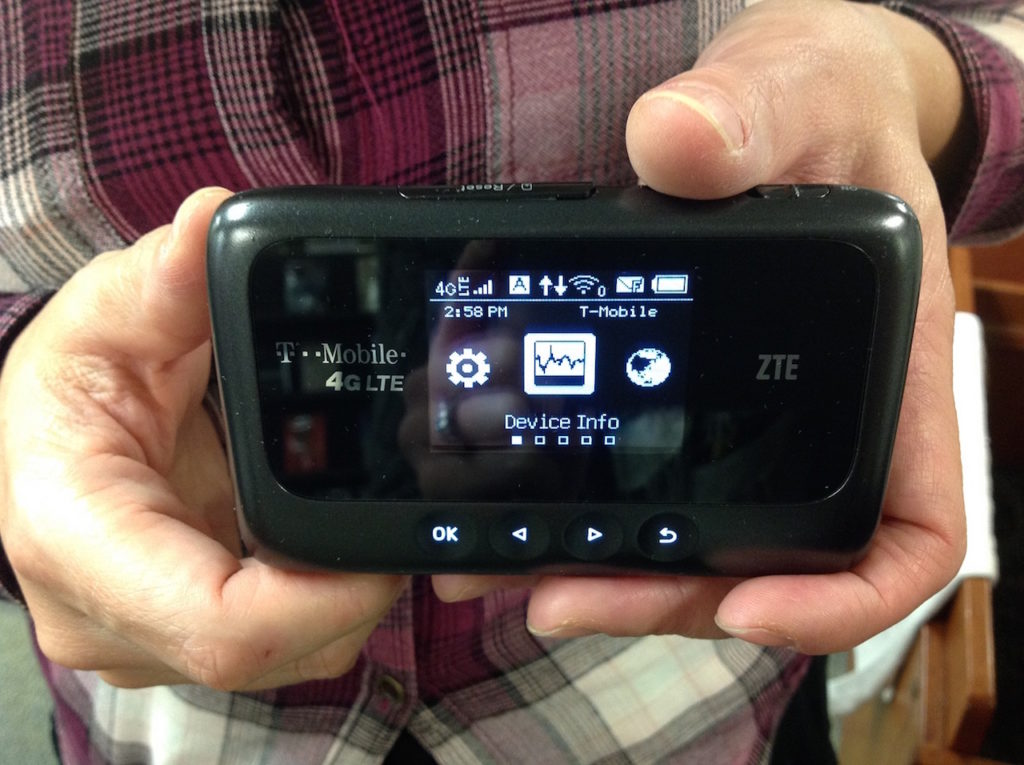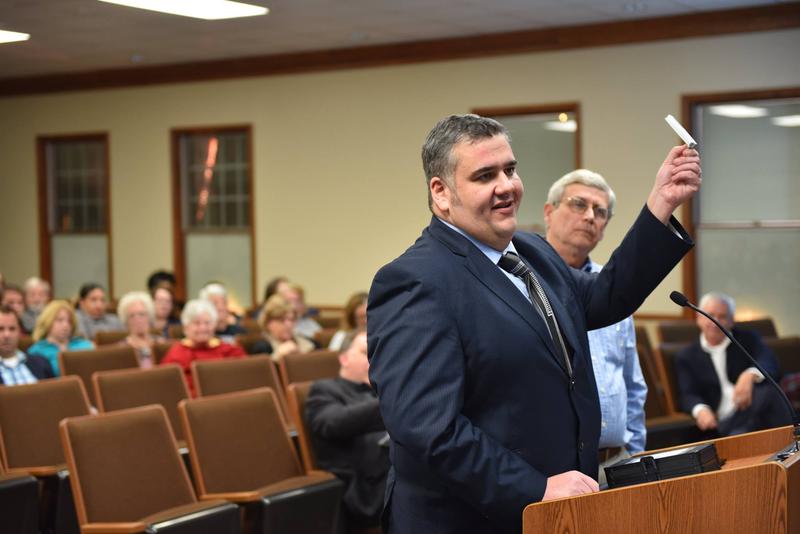
Libraries have become more than repositories for books, with some of the largest in the country allowing patrons to essentially check out Internet service. They do it by lending out little black mobile Wi-Fi hotspots that use cellular connections. And little Spring Hill, Tennessee, has joined the likes of Chicago, Seattle and New York City as an early adopter.
As a regular library-goer, Keith Morris was one of the first in town to hear about the new Internet option.
He checked out a hotspot and took it on a family road trip to the West Coast, making cellphone videos as they went.
“We went over some mountain passes — pretty places,” Morris said. “We got pretty good reception in Yellowstone, so that was kind of exciting.”
He could also keep up with email as part of his job in home lending.
But the Internet on-the-go service isn’t only for travelers.
In other cities, the focus is to get people online who can’t afford the monthly fee.
Spring Hill librarians sensed the demand. They’d see
people lurking outside the library on their laptops — before it opened and after it closed.
But they weren’t mooching the Wi-Fi
only because of affordability.
Librarian Jennifer Urban said the town is growing so fast that Internet providers can’t keep up with home construction.
“There are subdivisions here that no one in the subdivision has Internet access, for one reason or another. Just because our city is growing so quickly … And then we just plain have a lot of people that don’t have access to the Internet for financial reasons,” she said.
More:
Spring Hill conducts special census to capture growth
Now Urban oversees 20 hotspots. People check them out like a book, for a week at a time.

They’ve been coveted since city spokesman Jamie Page
announced their arrival with a Facebook post.
“This, I can say, was about the only thing that I can remember that never got a single negative reaction,
“
Page said.
“
It truly was accepted and, you know, embraced with open arms.”
Hotspots have become the most popular items in the library — by far — with a regular waiting list of two dozen people, Urban said.
“In theory, if we ever come to a point where there’s not a waiting list, they’ll be able to renew them up to three times,” she said.
Late Fees and Tech Support
Librarians are adjusting to provide more tech support, although Urban said the devices are simple and carry a battery charge of at least eight hours. The service, provided by T-Mobile, has impressed patrons with its range into remote areas.
As with books, there’s been a little trouble getting the hotspots returned on time. Two never came back, but Urban said she shut off their service remotely.
“I know within the library world there’s a little bit of eyebrow raising, as far as, you know, how will you regulate this?” she said. “You know, what kind of limitations will you place on it?”

For Keith Morris, who took one cross-country, there were no glitches. But when he brought it back he wasn’t sure if he should toss it in the bin with the rest of the books.
“I might have got a late fee,” he said, laughing. “I returned it after hours, we’ll just put it that way … but I secured it very well.”
“We do have stickers, on the boxes now, that say, ‘please bring to the desk,’ ” Urban said. “It’s a learning process for us as well as for everyone else.”
Urban also takes calls from other cities and states about what she’s learned. She tells them that at $8,000 per year in data costs, the batch of hotspots isn’t cheap. But she argues they fit the evolving role of a library — which has always been to connect people, for free, to information.
“The most gratifying,” Urban said, “is when you come into contact with someone who is not able to have access to the Internet in their homes. Maybe they’re searching for jobs and now they’re able to use that to continue to work at home even outside of library hours.”


